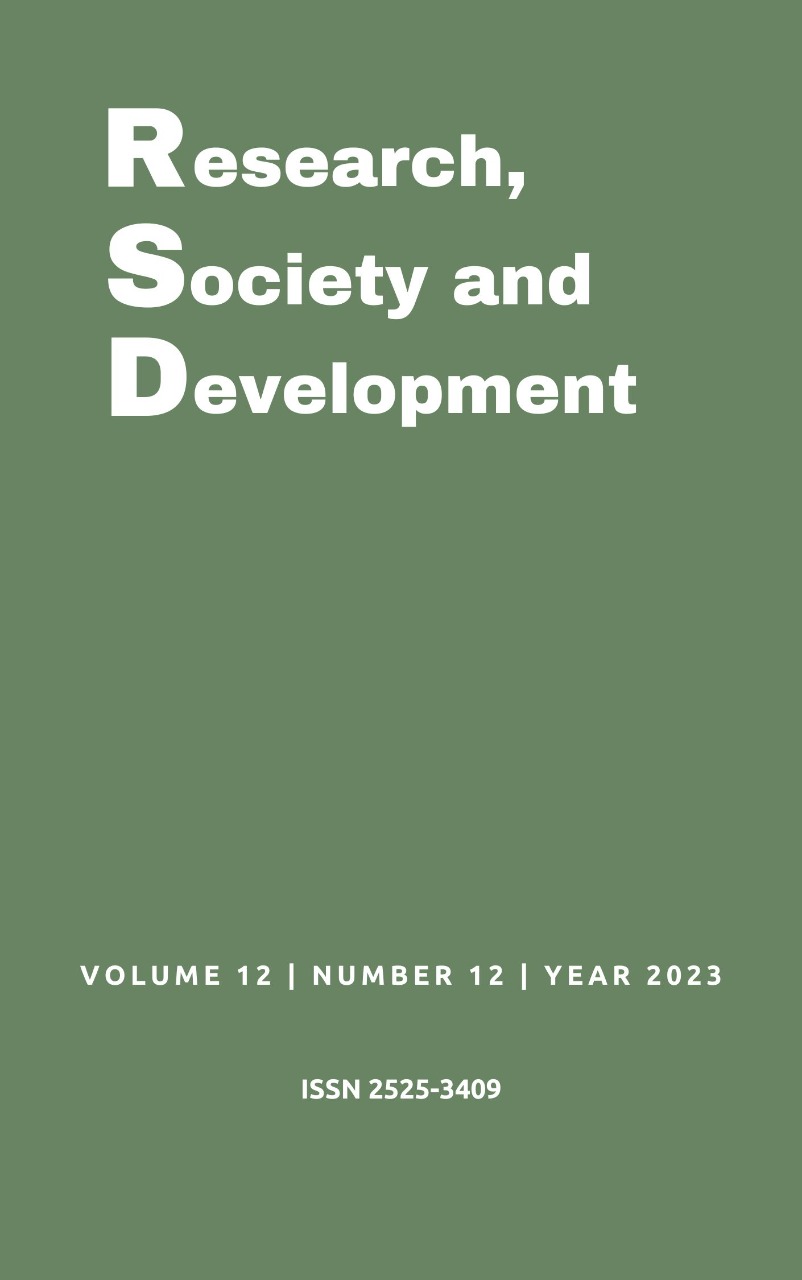Life after loss: The contributions of logotherapy in the process of overcoming death
DOI:
https://doi.org/10.33448/rsd-v12i12.43881Keywords:
Viktor Frankl, Grief, Sense, Stages of grief, Contributions.Abstract
Life after loss brings great reflections, having variations in not only material/physical but also symbolic spheres, making it possible to conjecture that such losses are also part of the overcoming process, considering that in some way it no longer belongs to the subject. This work was based on the studies of Viktor Emil Frankl, who was the founder of logotherapy, which is considered a psychotherapeutic approach that focuses on the search for the meaning of life as the main human motivator. Given this, logotherapy portrays grief as the result of learning, making it necessary to direct meaning to the experience in order to seek the meaning of life. In this scenario, the methodology was to carry out bibliographical research, aiming at understanding and interpreting the subject's social and cultural phenomena, with the objective of making the work valuable in different fields of study, through the texts that were nourished by the authors regarding the theme. Considerable results are also presented in relation to the research carried out, in which it was possible to observe that, addressing grief is understanding the process as inherent to the human being. It is possible to reflect that the authors presented propose the grieving process as linear, in which they are presented as a process that occurs fluently, passing from one stage to another. This study made it possible to conclude that the precepts of logotherapy presented during the work, which provided clarification and greater definition when it comes to grief and suffering.
References
Aciole, G. G., & Bergamo, D. C. (2019). Cuidado à família enlutada: uma ação pública necessária. Revista Saúde Debate. 43, 805-818.
https://www.scielo.br/j/sdeb/a/Tkwg7QgrTqbHqySsxw8hJZf/?format=pdf&lang=pt.
Aquino, H. A.A. (2013). Logoterapia e análise existencial: uma introdução ao pensamento de Viktor Frankl. Paulus.
Bromberg, M. F. (2000). A psicoterapia em situações de perdas e luto. Livro Pleno.
Feijoo, A. M. L. C. L. (2022). Escuta Clínica à Experiência de uma Mãe Enlutada em Tempos de COVID-19. Revista Psicologia: Teoria E Prática, 24(1), ePTPCP13955. https://doi.org/10.5935/1980-6906/ePTPCP13955.en
Fonseca, J. J. S. (2002). Metodologia da pesquisa científica. Apostila.
Frankl, V. E. (1978). Fundamentos antropológicos da psicoterapia. Zahar.
Frankl, V. E. (1986). Psicoterapia e sentido da vida. (A. de Castro, Trad.). Quadrante.
Frankl, V. E. (1989). Um sentido para a vida. (V. Lapenta, Trad.). Aparecida: Idéias e Letras.
Frankl, V.F. (1991). Em busca de sentido: Um Psicólogo nos campos de concentração. (Tradução de Walter Schlupp e Carlos Aveline). Petrópolis: Vozes.
Frankl, V. E. (1992). A presença ignorada de Deus (2a ed.). Vozes.
Frankl, V. E. (2003). Psicoterapia e sentido da vida. Quadrante.
Frankl, V. E. (2005). Um sentido para a vida: psicoterapia e humanismo. Idéias e Letras.
Frankl, V. E. (2011). A vontade de sentido: fundamentos da Logoterapia e aplicações da Logoterapia. Paulus.
Frankl V. E. (2019). O sofrimento humano: fundamentos antropológicos da psicoterapia. Tradução Renato Bittencourt, Karleno Bocarro. (Vol.1.). É Realizações.
Frankl, V. E. (2019). Em busca de sentido: um psicólogo no campo de concentração. (46a ed.). Sinodal, Vozes.
Frankl, V. E. (2019). Psicoterapia e sentido da vida: fundamentos da Logoterapia e Análise Existencial. Quadrante.
Giamattey, M. E. P., Frutuoso, J. T., Bellaguarda, M. L. dos R., & Luna, I. J. (2021). Rituais fúnebres na pandemia de COVID-19 e luto: Possíveis reverberações. Escola Anna Nery, 26, e20210208. 10.1590/2177-9465-EAN-2021-0208.
Gil, A. C. (2002). Como elaborar projetos de pesquisa. Atlas.
Heidegger, M. (1988). Ser e tempo (v. I). Vozes. (Trabalho original publicado em 1927). Heidegger, M. (1989). Ser e tempo (v. II). Vozes. (Trabalho original publicado em 1927).
Kubler-Ross, E. (1998). Sobre a morte e o morrer. (8a ed.). Martins Fontes.
Kubler-Ross, E. (2008). Sobre a Morte e o Morrer. Martins Fontes.
Kubler-Ross, E., & Kessler, D. (2005). On Grief and Grievining: Finding The Meaning of Grief Through The Five Stages of Loss. Scribner.
Lukas, E. (1990). Mentalização e saúde. Vozes.
Meireles, M. V. C. (2019). Filosofia e Psicoterapia no projeto da Análise Existencial de Viktor Frankl: a compreensão da pessoa espiritual a partir da transcendência. Doutorado em Ciência da Religião. Universidade Federal de Juiz de Fora, Juiz de Fora.
Parkes, C. M. (1998) A vontade de sentido: fundamentos e aplicações da logoterapia. (2a ed.). Paulus.
Rodrigues, R. (1991). Fundamentos da logoterapia na clínica psiquiátrica e psicoterápica. Vozes.
Sulzbach, N. (2008). Resgate da dignidade pessoal: uma experiência religiosa. (Monografia de Conclusão do Curso de Especialização em Logoterapia). Curitiba.
Zaleski, E. G. F., & Vietta, E. P. (1996). O sentido da vida do portador da AIDS (síndrome da imunodeficiência adquirida): uma questão de saúde mental. Editora UFMS.
Downloads
Published
Issue
Section
License
Copyright (c) 2023 Gessica Teodoro dos Santos; Lademir Renato Petrich

This work is licensed under a Creative Commons Attribution 4.0 International License.
Authors who publish with this journal agree to the following terms:
1) Authors retain copyright and grant the journal right of first publication with the work simultaneously licensed under a Creative Commons Attribution License that allows others to share the work with an acknowledgement of the work's authorship and initial publication in this journal.
2) Authors are able to enter into separate, additional contractual arrangements for the non-exclusive distribution of the journal's published version of the work (e.g., post it to an institutional repository or publish it in a book), with an acknowledgement of its initial publication in this journal.
3) Authors are permitted and encouraged to post their work online (e.g., in institutional repositories or on their website) prior to and during the submission process, as it can lead to productive exchanges, as well as earlier and greater citation of published work.


